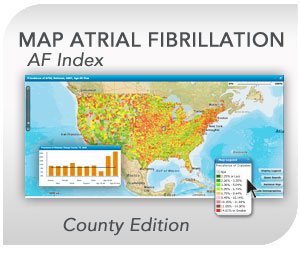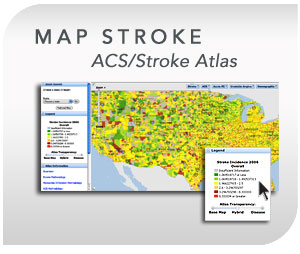Stroke Reports
Friday, December 18th, 2015

Stroke, 24 November 2015 Background and Purpose—The association between socioeconomic status in adulthood and the risk of stroke is well established; however, the independent effects of socioeconomic conditions in different life phases are less understood. … Conclusions—This study supports the hypothesis that unfavorable childhood socioeconomic conditions are related to ischemic stroke risk, independent of established risk […]
Stroke Reports
Friday, December 18th, 2015

BMC Neurology, 12 November 2015 Background Several studies suggest that perceived psychosocial stress is associated with increased risk of stroke; however results are inconsistent with regard to definitions and measurement of perceived stress, features of individual study design, study conduct and conclusions drawn and no meta-analysis has yet been published. We performed a systematic review […]
Stroke Reports
Friday, December 18th, 2015

Circ Cardiovasc Qual Outcomes, November 2015 Background—National guidelines endorse recombinant tissue-type plasminogen activator (r-tPA) in eligible patients with acute ischemic stroke to improve patients’ functional recovery. However, 23% to 40% of ideal candidates with acute ischemic stroke for reperfusion are not treated, perhaps because of the difficulty in explaining the benefits and risks of r-tPA […]
Stroke Reports
Friday, December 18th, 2015

Stroke, 29 October 2015 Although it is encouraging that during the past decade there has been a notable decline in the incidence of stroke in several countries around the world, further reductions in stroke occurrence will require even better treatment of conventional risk factors, as well as the identification and treatment of nontraditional risk factors. […]
Stroke Reports
Friday, December 18th, 2015

J Am Heart Assoc, 14 October 2015
Stroke Reports
Thursday, August 7th, 2014

The Lancet: 6 August 2014 Background Alteplase is effective for treatment of acute ischaemic stroke but debate continues about its use after longer times since stroke onset, in older patients, and among patients who have had the least or most severe strokes. We assessed the role of these factors in affecting good stroke outcome in patients […]
Stroke Reports
Thursday, August 7th, 2014

Neurolog: August 6, 2014 Objective: We sought to identify current US hospital practices for feeding tube placement in ischemic stroke. Methods: In a retrospective observational study, we examined the frequency of feeding tube placement among hospitals in the Nationwide Inpatient Sample with ≥30 adult ischemic stroke admissions annually with length of stay greater than 3 days. We examined […]
Stroke Reports
Thursday, August 7th, 2014

JACC: August 2014 A Report of the American College of Cardiology/American Heart Association Task Force on Practice Guidelines Read More
Stroke Reports
Thursday, August 7th, 2014

JAMA: August 2014 Importance Studies document a progressive increase in heart disease risk as systolic blood pressure (SBP) rises above 115 mm Hg, but it is unknown whether an SBP lower than 120 mm Hg among adults with hypertension (HTN) lowers heart failure, stroke, and myocardial infarction risk. Objective To examine the risk of incident cardiovascular (CV) […]
Stroke Reports
Thursday, August 7th, 2014

STROKEAHA: July 31, 2014 Background and Purpose—Adverse events (AE) in trial populations present a major burden to researchers and patients, yet most events are unrelated to investigational treatment. We aimed to develop a coherent list of expected AEs, whose incidence can be predicted by patient characteristics that will inform future trials and perhaps general poststroke care. […]



































